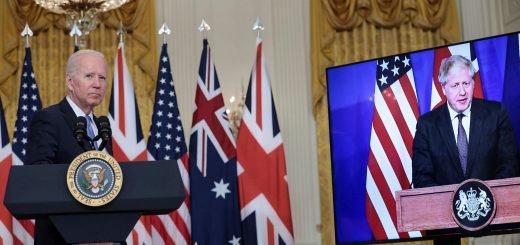FATF in Pakistan for Final Negotiations: What to Expect?
Pakistan’s financial woes continue.
Pakistan lacks the foreign currency reserves needed to sustain its high imports and low exports – running a monthly deficit of $2 billion. Since December, the Pakistani Rupee has been devalued four times, falling by more than 20 percent and the Pakistan Stock Exchange (PSX) reached a two-year low yesterday.
After exhausting all other avenues, Prime Minister Imran Khan’s government has approached Washington-based IMF to negotiate its 13th bailout package.
Amidst this fiscal turmoil, a team of the Financial Action Task Force (FATF), international terrorism finance watchdog, arrived on Sunday to Pakistan.
The nine-member FATF team will be holding meetings with Pakistani officials from October 7th till October 19th over the measures that Pakistan has undertaken to counter money laundering and terrorist financing after being placed on the FATF’s “greylist.”
What does it mean to be on FATF’s greylist?
Paris-based FATF is a global inter-governmental organization that combats illicit and terror financing. It identifies vulnerabilities in illicit financing laws of countries and works with the stakeholders to protect the international financial system from misuse.
The FATF placed Pakistan under the greylist in June, designating Pakistan’s financial systems as posing a risk to the international financial system due to “strategic deficiencies” in its ability to prevent terror financing and money laundering.
The FATF uses peer-pressure through name-and-shame to push countries into improving their financial institutions.
The effectiveness of these measures on Pakistan is debatable. Pakistan was also in the list from 2012 to 2015. In this period, it
However, investors are apprehensive about the effect the greylist is having on the already volatile and fluctuating Pakistan Stock Exchange. Being listed on the FATF’s greylist has tarnished the country’s image and foreign investors see this as a sign of future trouble.
Osama Rizvi, a writer for Daily Times, contends that a positive report by the FATF on Pakistan’s illicit financing reforms could help “nudge” the investors’ confidence back into the market and reduce uncertainty.
The FATF provided recommendations to Pakistan, pertaining to currency smuggling, hundi, hawala, and terror financing of proscribed outfits. In June, Pakistan proposed a 10-point action plan to reduce its deficiencies.
In order to be removed from the FATF list, Pakistan will have to substantially address all the components of its action plan. Its progress on the plan is being monitored by the Asia Pacific Group, a regional FATF-style body.
Once the FATF is assured that the jurisdiction has addressed the necessary measures, FATF’s on-site visit will confirm that the legal, regulatory and/or operational reforms are underway and there is political commitment and institutional capacity to sustain these reforms. Based on the on-site evaluation, the FATF will recommend removal of Pakistan from the greylist.
Failing to plug these deficiencies by September 2019, Pakistan risks the chance of being blacklisted.
While being on the FATF’s blacklist does not carry any formal sanctions according to international law, countries often face increasing global financial pressure once on the blacklist, often inviting international sanctions and economic repercussions.
The only two countries on FATF’s blacklist are North Korea and Iran.
Measures Undertaken by Pakistan
Pakistan has a money laundering problem and sometimes it is the citizens that are caught in the crosshairs. For instance, Muhammad Abdul Qadir, a Pakistani ice-cream vendor, was investigated by the authorities last month after they found 2.3 billion Pakistani rupees ($18.6 million) in his bank account – money Qadir knew nothing about and couldn’t sign for as he cannot write.
In April, ahead of its greylist designation, Pakistan amended its Anti-Terrorism Act of 1997, to add “listed under the United Nations Security Council Act (1948),” thereby ensuring that any group proscribed by the UNSC would also be banned in Pakistan.
However, the United States State Department recently reported that while ATA criminalizes terrorist financing, its implementation remains “uneven.”
Last week, the federal government finalized the amendments to the existing FIA Act, 1974; Foreign Exchange Regulation Act, 1947 (FERA); Customs Act, 1969; and Anti-Money Laundering Act, 2010 and will now be submitted to the Prime Minister.
These laws would enhance the role of Pakistan’s Federal Board of Revenue (FBR) and Federal Investigation Agency (FIA) in checking hundi, hawala and other ways of illegal transfer of money as well as tax evasions, Dawn reports. The FBR and the FIA would be responsible for containing currency smuggling, mainly of dollars, from the country.
Under the new amendments, punishments on illegal transactions have been increased to a minimum of three years and maximum of ten years, alongside fines of up to 50 million Pakistani Rupees and attachment of properties for six months. The FIA and other agencies will also be allowed access to bank accounts of individuals and entities.
The FIA will also play an enhanced role in restricting hundi/hawala transfers. Last month, Pakistan Times reported that FIA arrested over 25 people and recovered Rs 25 million from illegal hawala/hundi businesses.
These hawala/hundi systems involve moving of wealth in and out of countries without any physical movement of currency.
They are frequently used by those who believe formal banking institutions to be un-Islamic.
The hawala systems rely on mutual trust between the participants. A person will give money in domestic currency to the hawala dealer with details of the receiver. The dealer will pass the information along to his partner in the receiver’s foreign country. The partner of the hawala handler will then give the receiver money in the currency of the receiver’s country.
Due to its lack of oversight and supervision, this system often poses a money laundering and terrorist financing risk.
The US State Department’s annual country report on counterterrorism and countering violent extremism for the year 2017 stated that “these unlicensed money transfer systems persisted throughout the country and were open to abuse by terrorist financiers operating in the cross-border area.”
The report acknowledged that Pakistan’s domestic laws technically comply with the global anti-money laundering and anti-terrorism financing standards and the efforts made to prevent counter-terror financing, including enhancing interagency coordination and designating the use of unlicensed hundi and hawala systems as predicate offences to terrorism
However, it added that the government has “failed to uniformly implement UN sanctions related to designated entities and individuals such as LeT and its affiliates, which continued to make use of economic resources and raise funds.”
This was in reference to Lahore High Court’s November 2017 decision to no longer detain the LeT founder, Hafiz Saeed, a UN-designated terrorist. Through an interim order, the court also permitted Saeed’s Falah-e-Insaniat Foundation (FIF) to continue its “welfare activities” until the final judgment.
In September, the Supreme Court of Pakistan also rejected the federal government’s plea challenging the Lahore High Court’s interim order.
According to the State Department report, Pakistan failed to “significantly limit” LeT and JeM from openly raising funds, recruiting and training in Pakistan. Given the sway of leaders like Hafiz Saeed on Pakistan’s conservative bloc, any strict action seems unlikely.
“The capacity building of law enforcement organisations needs to be a top priority of anti-money laundering regime,” writes Syed Akhtar Ali Shah, the former Inspector General of Police and former Home Secretary (KP).
Moving Forward
In the coming weeks, Islamabad’s resolve to end illicit financing will be put to test.
Prime Minister Imran Khan’s government will have to demonstrate a stronger stance – not just in the jurisdiction but also in implementation – on money laundering and terrorist financing to make it out of FATF’s greylist and restore some market confidence.
Bansari Kamdar is a freelance journalist based in Boston. She writes on the South Asian political economy, gender and security issues. She has an MA from Boston University in International Relations and International Communication, along with graduate certificates in Asian Studies and Women’s, Gender, & Sexuality Studies
The views and opinions expressed in this article are those of the authors and do not necessarily reflect the views of The Kootneeti Team



















